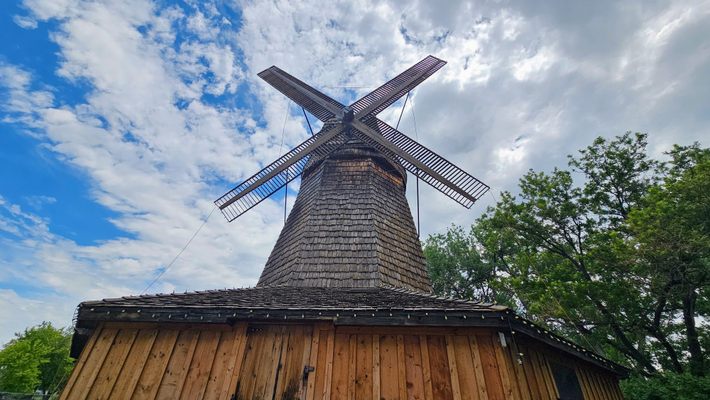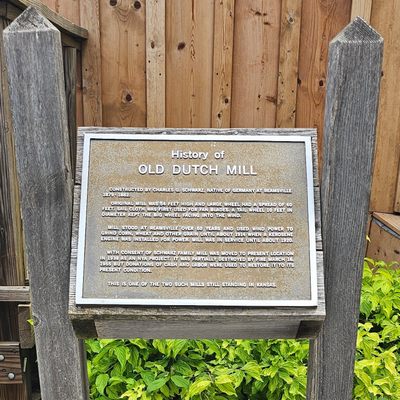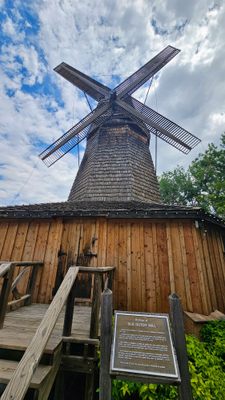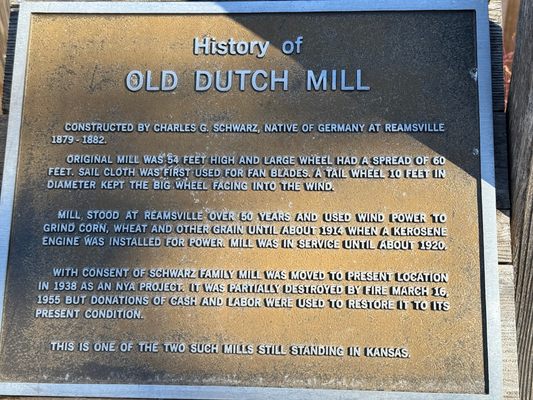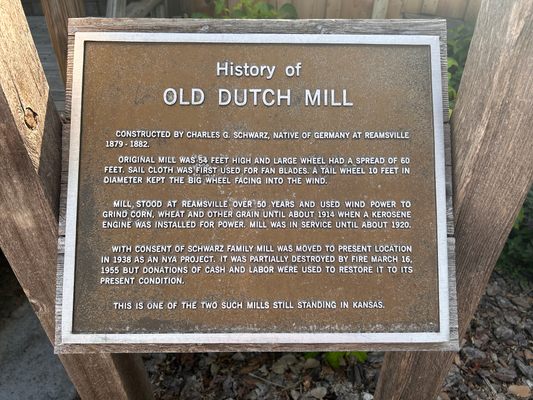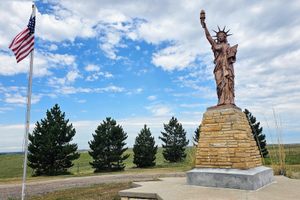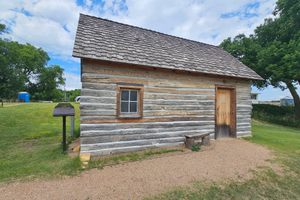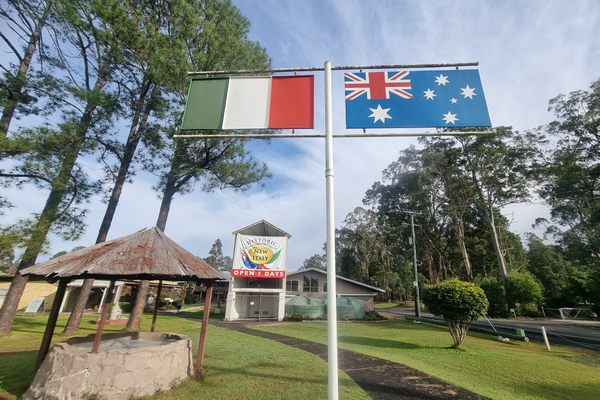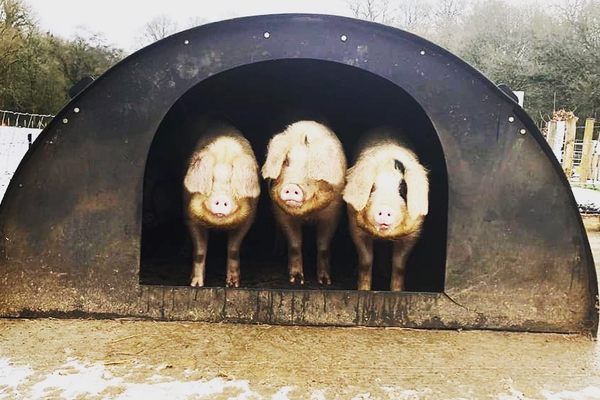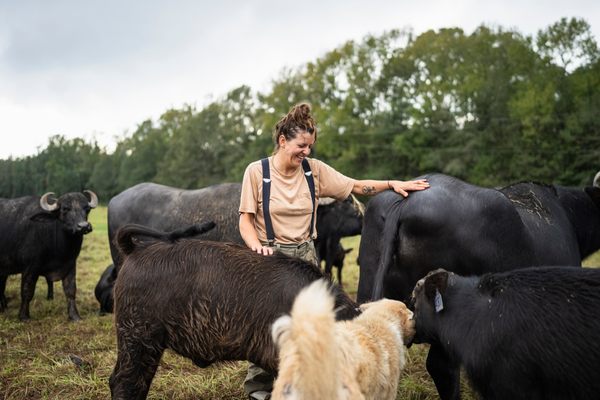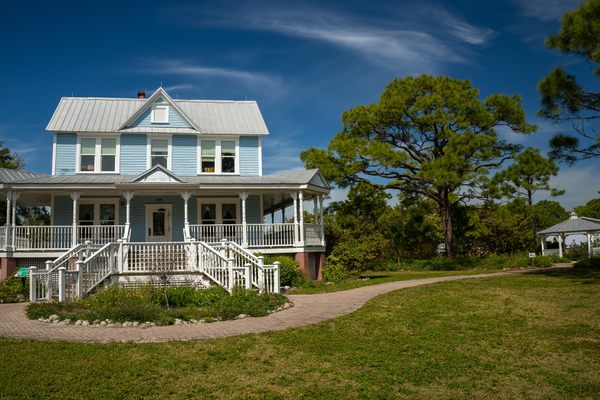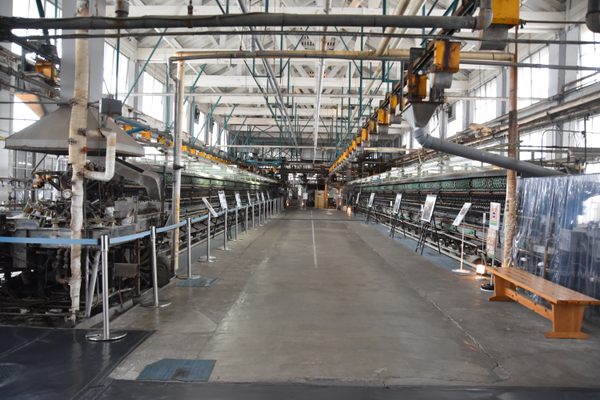About
A reminder of Kansas’s early pioneer days and the waves of immigration that defined American expansion, the Old Dutch Mill in Smith Center, Kansas is a link between Old World Europe, American farm life, and the rise of historic preservation in the 20th century.
The mill’s story begins far from Kansas. Charles G. Schwarz was born in Grauenhagen, Germany, in 1840, and moved to Kansas in pursuit of work in 1873. Although promised a job, he and his family found the mill closed, and decided to purchase a modest homestead in Reamsville. A miller by trade, Charles and his brother began building a Dutch-style mill in 1878, cutting the timber themselves, and sourcing stone from nearby Nebraska. Building the mill was an enormous undertaking, as the fan alone spanned sixty feet in length. They would soon sell the mill, but after a series of financial disasters left them nearly destitute, they would repurchase it in 1890 for horses and other supplies.
Their work paid off, and the mill would grind corn and wheat for the community, one of only five Dutch mills ever built in Kansas. Powered by wind until 1914, it would later be powered by kerosene, but Charles’ failing health soon led the mill to be closed for good in 1920. Already the oldest building in the county, the family began offering the mill around as a rare item worth preserving. The town of Smith Center purchased it, and in 1938, it moved to its new permanent home in Wagner Park.
A WPA project, the mill was moved with the help of the National Youth Administration, a New Deal work corps. A contemporary report in the Smith County Pioneer noted the process went well, “but the pigeons that had made their homes in it undisturbed for 25 years declined to make the trip.” That would be to their offspring’s credit, because on March 16, 1955, the building would catch fire. It was assumed to be lost at first, but again, the love for this old building won out. Families and local groups passed the hat and collected more than $2700 to restore the mill.
Today, the Old Dutch Mill remains an important part of Smith County heritage, but it is also part of the present-day community fabric. It is a place to gather, and is used as an event space for family occasions, weddings, and the backdrop for many a picnic. The mill remains one of the most prominent buildings in the area, and a link between modern rural life and Kansas’s pioneer past.
Related Tags
Know Before You Go
The Old Dutch Mill is free to visit, but is closed to the public. Groups can reserve the mill for a $25 minimum fee on a first come, first served basis. Please check Smith Center’s government website for details.
Community Contributors
Added By
Published
December 15, 2023
Sources
- https://www.hmdb.org/m.asp?m=187495
- https://drive.google.com/file/d/0B7xPR2lxwQ4kYTltQXA3UC1uOEE/view?resourcekey=0-gE3hniQY4GWk7Zh8wxDx2Q
- https://historicalarchitectureofsmithcenterks.blogspot.com/2017/07/old-dutch-mill-wagner-park-smith-center.html
- https://krex.k-state.edu/bitstream/handle/2097/25423/LD2668T41960P54.pdf?sequence=1
